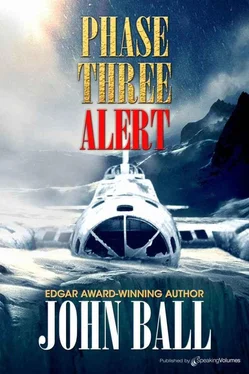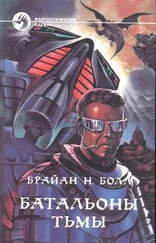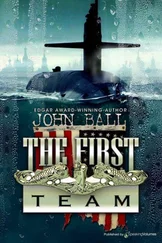It was quiet on the line for several seconds before General Miller answered. When he did, his words came slowly and carefully. “I might, except for one thing — which makes what I have in mind utterly impossible.”
* * *
What remained of the Arctic daylight was rapidly fading from the sky. Now well south of Thule, maintaining her systematic advancing line search of the ice cap, The Passionate Penguin was flying through increasingly rough air. Although his own mind was already made up, Ferguson called a council of war via the intercom. “We have a choice,” he said. “We can return home and resume at daybreak, presumably in better weather. Or we can keep on going; there’s plenty of fuel and we have the box lunches. However, at night the flying will be more hazardous and we won’t have enough visibility to pick up anything on the ice cap.”
“Sir.” Ferguson recognized the voice of Sergeant Feinberg.
“Go ahead.”
“We’ve already discussed that back here, and we’re unanimous to continue. In the morning could be too late.”
Ferguson looked at the colonel. “You, sir?”
“You’re the A/C.”
Ferguson raised Thule on the VHF. “Air Force three-six-zero,” he reported. “Results negative to date. We will continue mission. Over.”
“Three-six-zero, roger. All others continuing also.”
“Any report from the hospital?”
“Nothing encouraging, sir.”
“Thank you.”
Ferguson got up and Corbin replaced him. He went back into the surprisingly small fuselage and used a relief tube. The heater was working full blast, but it was still cold inside the aircraft. There was no insulation of any kind and the temperature outside at more than 10,000 feet was frigid. The men who had been keeping a continuous lookout were uncomfortable, but were not complaining. Sergeant Stovers was posted on the port side, looking out the large window that had been intended to be replaced by a gun position. Opposite him there was a crew member Ferguson hadn’t realized was on board — Atwater from Supply. “How about some coffee?” Ferguson inquired.
Andy Holcomb answered him. “I’m afraid it’s all gone, sir, but we have drinking water. We brought plenty of that. Actually, there is some hot coffee, but we’re saving it.”
“I understand.”
Ferguson broke open a lunch box, wrote his name on the cover, and extracted a piece of fried chicken. The cold food tasted good; he hadn’t realized how hungry he was.
“Sir,” Holcomb said. “She flies better than I had thought possible. She’s a great airplane.”
“Damn right,” Ferguson responded. He looked out of the window, down onto the darkening ice cap, and tried to estimate their chances. “It’s a helluva big area,” he said, half to himself. “Immense. The Penguin was out in plain sight for thirty years and no one that we know of saw her.”
They all knew that and no one commented. The wings began to bank as another systematic line search was concluded; slowly the aircraft turned ninety degrees, went further south for two minutes, then turned again another ninety degrees to resume the search pattern. The two lookouts got up and were immediately replaced. To keep outside vision as clear as possible, no lights were being used inside the plane except for the concentrated one above the navigator’s desk. With his chart spread out before him, Jenkins kept careful, minute-by-minute track of the Penguin ’s position. He had no LORAN receiver, but he did not need it; the newly installed TACAN was enough.
Ferguson looked over the shoulder of Sergeant Feinberg, who had taken up the watch on the starboard side. “Thanks for all you’re doing,” he said, making it a general comment.
“This is nothing,” Feinberg answered him. “Think of J Site; if they can keep going on five different scopes more than eight thousand hours a year, who are we to complain?”
There was nothing to be added to that. Ferguson found a sandwich in his lunch box and bit into it. It was thickly cut ham. As he chewed, he wondered if the people stranded on the ice cap had any rations at all.
When he had eaten all that he wanted, and had drunk some water, he returned to the flight deck and relieved the colonel. He sat on the right-hand side, letting Corbin keep the command seat. The four engines were running smoothly, their combined thunder subdued because they had been pulled back into long-range cruise. The propellers were synchronized and despite the frequent moderate turbulence, they stayed that way. Idly, Ferguson wondered if they had crossed the spot where the B-17 had first been rediscovered. He could have found out by asking Jenkins, but he preferred not to know.
When it was completely dark he made a decision not to use the navigation lights; they might hamper the scanners. He looked out and saw that Corbin had them on. He was about to order them off when he changed his mind — it occurred to him that the people on the ice cap might be able to see a light when they couldn’t hear the engines. They would be frozen, probably hungry, and completely miserable. He had no idea of the condition of the Otter, but any hope that it might have come in under its own power had long ago been abandoned. The B-17 reached the end of the search leg; Corbin let it go on for another five minutes on the odd chance that there might be something out there; then he turned. “Did you get that leg extension?” he asked Jenkins over the intercom.
“Yes, I did.”
As he established the new heading, Ferguson called Thule once more. “Any news?” he asked.
“Negative, except for a call from the Pentagon.”
“Have we a problem?”
“I don’t think so. One of the Det. 4 birds is in for gas and a relief crew; it’s going right out again.”
“How about the C-130?”
“Still flying higher altitude patterns, west of you.”
“Anything from the hospital?”
“No, but they keep calling, asking for news from us. I gather it’s not good.”
“Thank you.”
The Passionate Penguin flew on. The night folded in around her, shrouding the ice cap and leaving her isolated in a black void. At hardly more than 160 miles per hour she absorbed the endless small bumps and continued on her heading. Ferguson wondered how Jenkins was possibly able to plot her position; they were well out of the effective range of the DME and he had not done any celestial work; apparently he wasn’t equipped for it. He pressed a button for the intercom. “Do you know where we are?” he asked.
“Yes.” Then the navigator added a little heavily: “Over the ice cap.”
The colonel reappeared on the flight deck. “How about a relief?” he asked.
Corbin answered him. “Take it easy, sir, for a while. We’re all right.”
Ferguson looked down and tried to see if he could distinguish anything. There were some slightly colored shadows, but he knew that if there was an aircraft sitting on the ice directly in his range of vision, he would not be able to see it. Number four engine fell slightly out of step and he made a minute throttle adjustment.
The intercom came on; Bill Stovers’s voice was abruptly tense. “I have a flare, or what looked like one. Four o’clock, range two to three miles.”
The ennui that had permeated the cold, narrow aircraft burst apart and surging excitement began to replace it. Ferguson repeated, “Flare at four o’clock, range two to three miles.” He looked at Corbin, who lifted his hands off the yoke. Ferguson seized hold, banked into a precision turn, and counted off the seconds until he had completed 115 degrees; then he rolled her out almost exactly on the heading he wanted. He bent forward over the yoke, straining his eyes, and silently praying that it hadn’t been a meteor. “We can signal with the landing light,” he told Corbin. His copilot hit the switch; the powerful beam split the night sky, off and on several times.
Читать дальше












